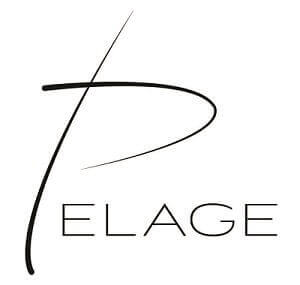Update: July 20, 2024
We now have more details on the Phase 2 trials for PP405. Including a short survey to determine eligibility. All 6 US states that I mentioned in the last update are now recruiting volunteers (with Texas having two locations). You have to be between the ages of 18-55, and once-a-week visits will be required for 16 weeks. The product comes in the form of a topical gel. Pelage Pharmaceuticals also has an update with the above link on its home page.
Update: June 12, 2024
Pelage Pharmaceuticals’ Phase 2 clinical trials of PP405 officially started on June 5, 2024. They are currently recruiting volunteers in Indiana, Minnesota, Texas and Utah. Still to come are California and Virginia. The primary completion date is December 2024, and the study completion date is February 2025. PP405 is an inhibitor of mitochondrial pyruvate carrier (MPC).

Pelage Pharmaceuticals
I previously wrote about Pelage Pharmaceuticals in my 2019 post related to the research of its President and co-founder Dr. William Lowry. The other co-founders are Dr. Heather Christofk and Michael Jung. I also covered the findings of Dr. Lowry and Dr. Christofk’s UCLA team in a 2017 post.
These UCLA researchers discovered two topical compounds (RCGD423) and (UK5099) that regrew hair in mice via different mechanisms. Both drugs involve an increase in lactate production. This in turn activates hair follicle stem cells and leads to increased and quicker hair growth.
Dr. Lowry’s patent can be found here. Patent and technology rights to both topical drugs have been exclusively licensed to Pelage Pharmaceuticals by UCLA.
RCGD423
RCGD423 activates the JAK-STAT signaling pathway, which in turn leads to an increase in lactate production. This extra lactate activates hair follicle stem cells and results in quicker hair growth. The main 2017 study on RCGD423, lactate dehydrogenase activity and hair follicle stem cell activation can be read here. I also covered it in my earlier linked posts related to the work of Pelage co-founders Dr. William Lowry and Dr. Heather Christofk.
UK5099
UK5099, blocks pyruvate (a glucose metabolite) from entering cell mitochondria. This also results in an increase in lactate production in the hair follicle stem cells, and therefore accelerates hair growth. There is a 2015 study from China related to the application of mitochondrial pyruvate carrier blocker UK5099 and its effects on prostate cancer cells.
Update: May 6, 2024
Pelage Pharmaceuticals Phase 2 Clinical Trials Start in June 2024
Yesterday, a reader e-mailed a new link on Pelage Pharmaceuticals’ Phase 2 clinical trials for its PP405 inhibitor of mitochondrial pyruvate carrier (MPC). The Phase 2 trials are set to begin in June 2024 and will involve 60 participants. Half of these will take a PP405 0.05% topical gel once per day, and the other half will get a placebo vehicle daily gel. The study primary completion date is December 2024, and actual completion date is February 2025.
Recruitment will likely start soon, and I assume it will be in the US based on the listed contact person and phone number. The contact e-mail is listed as clinicaltrials@pelagepharma.com. Please DO NOT call them now as the recruitment has not yet commenced and they might get annoyed.
If you are between the ages of 18-55 and have androgenetic alopecia, you can participate. However, the inclusion criteria for men and women is specific:
- Males must have an AGA modified Norwood-Hamilton Classification score of Type III vertex, Type IV or Type V.
- Females must have a Savin classification score of I-2, I-3 or I-4.
Update: March 9, 2024
Positive Phase 1 Clinical Trial Results
Earlier today, Pelage Pharmaceuticals gave a positive update on its novel small molecule PP405. Full summary can be read here. In Phase 1 clinical trials, PP405 reactivated dormant hair follicle stem cells and triggered hair growth. The company’s presentation was made by Dr. Christina Weng and titled: “Inhibition of pyruvate oxidation activates human hair follicle stem cells ex vivo”. Pelage will begin its multi-center Phase 2a trial of PP405 in mid-2024. It will recruit both men and women with androgenetic alopecia.
Their description of this unique hair growth molecule is as follows:
“PP405 is a potent topical mitochondrial pyruvate carrier (MPC) inhibitor that acts on the cellular metabolic pathway to upregulate lactate dehydrogenase (LDH).”
Stem cells are particularly sensitive to LDH, so this results in their activation and subsequent hair growth. PP405 demonstrates a statistically significant increase in Ki67 signaling in the hair follicle bulge. Ki67 is a well-established marker of stem cell proliferation.
February 27, 2024
Pelage Pharmaceuticals Raises $16.75 Million and Phase 2 Trials to Begin in 2024
Pelage Pharmaceuticals has raised $16.75 million in Series A Financing. More importantly, they will begin Phase 2 Clinical Trials for PP405 in mid-2024.
Phase I clinical data met primary safety endpoints. And they confirm that their was statistically significant stem cell activation in hair follicles after just one week of treatment with PP405.
Per CEO Daniel Gil, Ph.D.:
“Our scientific co-founders have uncovered a unique biological mechanism with the potential to reactivate hair growth in people with alopecia.”
The company will present translational data at the American Academy of Dermatology meeting in March 2024.
Recently, reader “Ben” made an very interesting discovery on Pelage Pharmaceuticals’ website. The following sentence at the bottom:
“Early Phase I clinical data shows statistically significant stem cell activation in the hair follicles after one week of treatment with PP405.”
This is super news. So their trials have started. I wonder if PP405 is RCGD423 or UK5099? I think it sounds like that latter. The company’s website homepage describes PP405 as:
“A novel, non-invasive, topical small molecule drug platform that activates stem cells in the hair follicles directly to stimulate robust hair growth. By targeting an intrinsic metabolic switch in hair follicles, Pelage’s platform is suitable for all genders, skin types, and hair types.”
In other recent news, Pelage appointed Dr. Qing Yu Christina Weng as Chief Medical Officer.